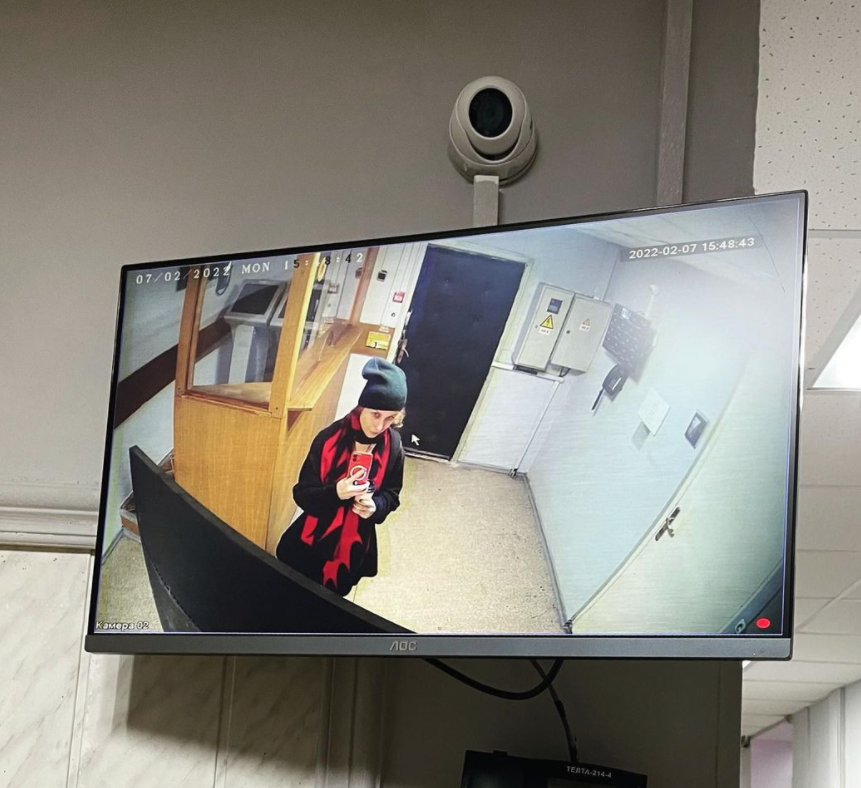
Masha Alyokhina, a member of the Russian punk band and protest group Pussy Riot, has been detained in Moscow for allegedly sharing a photo with Nazi imagery on social media in 2015. The arrest, for which she’s required to serve 15 days in jail, comes just before the activist was set to speak at a symposium on authoritarianism and art.
The picture, posted seven years ago, depicts three women in hijabs, one of which bears text that reads “Vodka Dudka Islam,” according to Mediazona, a Russian news outlet founded by Alyokhina and fellow Pussy Riot member Nadezhda Tolokonnikova. On the sides of the image are swastikas, though in reposts the symbols have since been edited out, the Art Newspaper reported.
Alyokhina was detained this past Monday upon leaving a meeting with an inspector at the Federal Penitentiary Service, where she’s required to check in regularly as one of the terms of a previous charge for promoting protests in support of jailed Kremlin critic Alexei Navalny last January.
“At the exit from the inspection there was already a police car,” the Pussy Riot member wrote in an Instagram post after the arrest. On Twitter, meanwhile, she posted a picture of the case file as well as one of herself flexing an arm muscle before a mirror. “15 days,” the caption for the latter read.
This is the second time in a period of three months Alyokhina has been arrested for social media posts from 2015. In mid-December, she was similarly sentenced to 10 days of administrative detention for an old photo of Belarusian dictator Alexander Lukashenko surrounded by swastikas.
In January of 2021, Alyokhina was arrested for tweeting out information about a mass demonstration against the detainment of opposition leader Navalny. She was placed under pretrial house arrest on January 29, a punishment that was renewed again in March, April, and June.
The activist remained under house arrest until September, when she was formally sentenced to one year of restricted freedom for her role in the Navalny protest. Because the event broke gathering laws related to the pandemic, the official charge was “inciting violations of sanitary restrictions.”
Alyokhina’s “restricted freedom” sentence prevents her from traveling outside of Moscow, as well as from leaving her house after 10 p.m. and attending large group gatherings. She is required to meet with the corrections service twice a month.